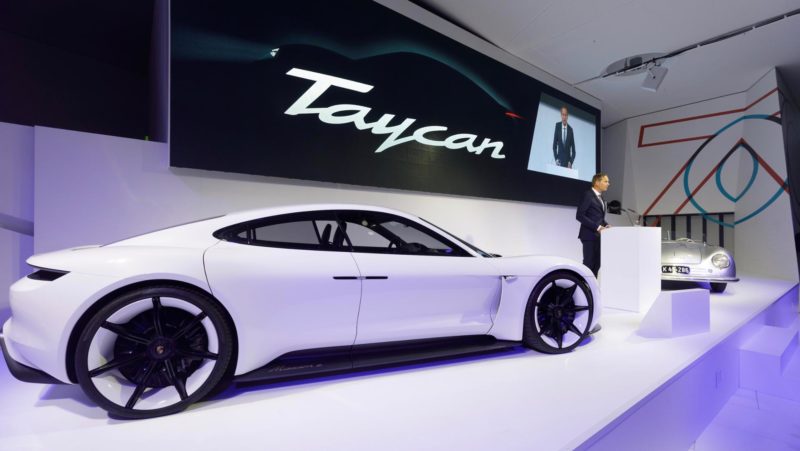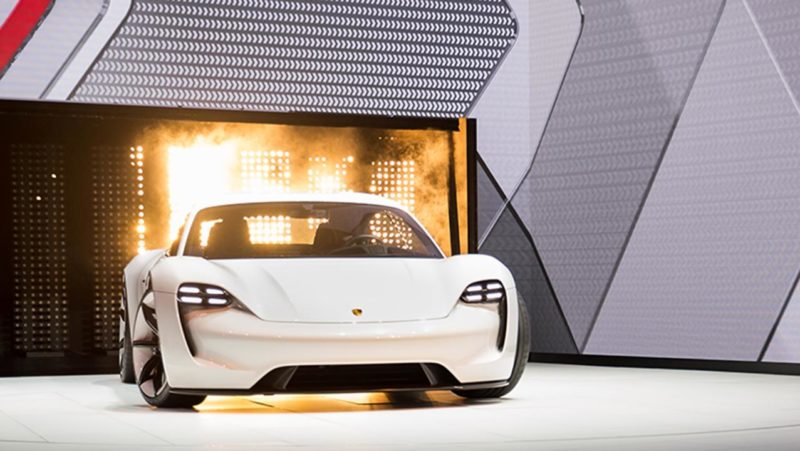
The future is electric, and Porsche is embracing the change. Per CEO Oliver Blume; “Electromobility means a high level of efficiency and outstanding performance, making it a fantastic fit for Porsche.” The models Porsche currently produces reflect this. With hybrid models in three segments, the brand is leading the market in hybrid systems integration. Indeed, Porsche is unique in positioning plug-in hybrid models at numerous points in the model range. In the case of the Panamera, hybrids are available at both extremes of the spectrum, including the top-performing Panamera Turbo S E-Hybrid.
Hybridization is not the end of Porsche’s commitment to an environmentally-conscious future. Per Mr. Blume; “we are unconditionally committed to the Paris climate protection objectives. Ultimately, as car manufacturers it’s very clear that we have a responsibility to reduce CO2 emissions from transport.” The next phase, heralded by the upcoming Taycan, signals several pieces of new technology.
The next generation of batteries is reportedly coming next year. The new technology will increase the ampere-hours of Porsche’s battery cells from 37 to 47. The update will facilitate longer ranges, which will benefit Porsche products.
Understanding the Shift to Electrification
EU CO2 limits are due to decrease by 35% by 2030. In the scope of an automotive product cycle, this is an extremely short amount of time. Like higher-volume manufacturers, including those also under the Volkswagen corporate umbrella, Porsche is obligated to comply with the new regulations. Rather than allowing other brands to take up the brunt of the change, Porsche is opting to lead from the front.
According to Mr. Blume, though Porsche’s market share is comparatively small, he and the executive board have decided it is out of the question to do anything other than set a positive example for the rest of the market. Though the projected carbon dioxide figures are “extremely ambitious,” Mr. Blume believes that Porsche will be able to meet or exceed the new limits in the time allotted.
In addition to the eagerly-awaited Taycan and Taycan Cross-Turismo, the next generation Macan is due to be all-electric. Though no plans are currently in place to make the 911 all electric, Mr. Blume, even indicating that the 911 will be offered with an internal combustion engine as long as is legally permissible, does note that the 992 is being developed to be hybrid-capable.

Demand for Taycan Swells
We, among others, are extremely eager to see the new Taycan when it debuts in September. In the interim, Porsche is registering interest in the model to help scale initial production. So far, the brand has confirmed interest from more than 20,000 prospective buyers worldwide. Registration of interest is accompanied by a €2,500 downpayment on the as-yet unreleased model.
Per Detlev von Platen, Member of the Executive Board for Sales and Marketing at Porsche AG; “The overwhelming interest in the Taycan shows us that our customers and fans are just as excited about the first Porsche electric athlete as we are – and we’ve therefore increased our production capacities, (t)he Taycan will be the most sporty and most technically advanced vehicle in its segment – a true Porsche.”
The Taycan will debut in September, and is due to launch before the end of the year. Quoted performance figures include a 0-62 mph sprint of “considerably less” than 3.5 seconds, and a range of more than 500 kilometers when measured by NEDC standards.
